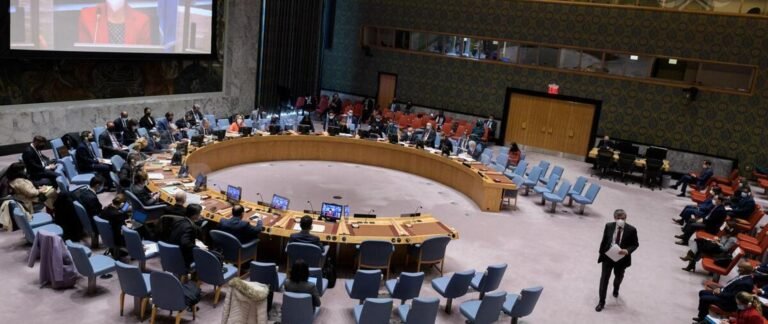The United Nations Security Council is preparing for an emergency meeting following a dramatic escalation in Europe’s security crisis. Poland has requested urgent discussions after Russian drones entered its airspace on Wednesday morning, marking a rare violation of NATO territory.
The incident has raised immediate alarm across the alliance, with fears that the war in Ukraine could spill into NATO’s borders. Polish Prime Minister Donald Tusk said a total of 19 objects, including drones that entered from Belarus, breached Polish airspace. While no casualties have been reported, Warsaw described the event as unprecedented. Moscow has denied any responsibility.
In response, Polish air defences and NATO aircraft were swiftly deployed to track and neutralize the intruding drones. The move underscored both Poland’s heightened state of readiness and NATO’s commitment to defending its eastern flank.
Polish President Karol Nawrocki spoke with U.S. President Donald Trump and other allied leaders after the incursion. Nawrocki confirmed that the talks reinforced a sense of “unity” within NATO and Europe. Washington reiterated its stance that it would not hesitate to defend its allies.
“The United States will defend every inch of NATO territory,” said Matthew Whitaker, the U.S. ambassador to NATO. His remarks echoed long-standing commitments under the alliance’s mutual defense pact, signaling that Washington views the incident as a serious provocation.
President Trump also took to his Truth Social platform, voicing his alarm. “What’s with Russia violating Poland’s airspace with drones? Here we go!” he wrote, underscoring U.S. concerns about Moscow’s increasingly bold actions.
In Brussels, Prime Minister Tusk invoked Article 4 of the NATO treaty, which allows member states to call consultations whenever they feel their security is threatened. Tusk warned that Poland is now “closer to conflict than it has ever been since the Second World War.”
The request for NATO discussions is significant. Article 4 consultations are rare and typically reserved for moments of serious crisis. While Article 5—the mutual defense clause—has only been triggered once in NATO history after the September 11 attacks, Article 4 has been used in situations where members sought to avoid escalation while coordinating a united response.
European leaders condemned the drone intrusion as reckless and destabilizing. Many described it as a calculated attempt by Moscow to test NATO’s resolve. Some diplomats argued that even if Russia did not intend to strike Poland directly, the drones’ path into NATO territory cannot be dismissed as accidental.
Belarus, a close ally of Russia, suggested that the drones may have strayed off course due to network interference. NATO officials, however, are treating the incident as deliberate. The alliance’s military experts are currently assessing data to determine the drones’ flight patterns and origins.
For Poland, the breach comes as part of a wider pattern of Russian aggression. Warsaw has consistently voiced concern that Moscow’s war in Ukraine could spread beyond its borders. The government has strengthened its military posture, expanded defence spending, and worked closely with NATO partners to bolster deterrence.
The UN Security Council’s emergency session will give member states an opportunity to address the violation and discuss possible responses. While Russia holds a permanent seat and veto power on the council, the meeting will place Moscow under global scrutiny and highlight the risks of escalation.
For NATO, the stakes are high. Any miscalculation could drag the alliance into direct confrontation with Russia, a scenario leaders in Washington, Brussels, and European capitals have long sought to avoid. Yet, as Prime Minister Tusk’s remarks suggest, Poland now sees itself at a dangerous crossroads.
With tensions soaring, the coming days will test the alliance’s ability to remain unified, measured, and prepared. The emergency meeting at the UN marks another chapter in a war that continues to reshape Europe’s security landscape and push NATO closer to direct confrontation with Russia.







